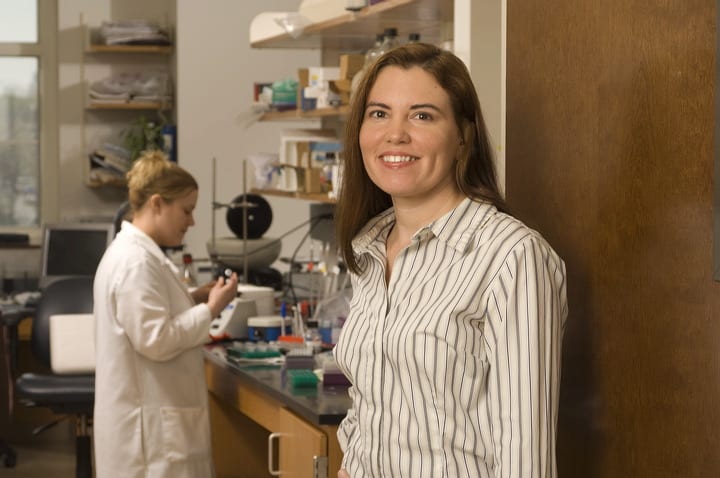“We find that the fixed view of the ideal scientist has a significant impact on the ability of both women and men to stay in and succeed in academic science.” — Lincoln, Ecklund
Work life in academia might sound like a dream: summers off, year-long sabbaticals, the opportunity to switch between classroom teaching and research. Yet, when it comes to the sciences, life at the top U.S. research universities is hardly idyllic.
Based on surveys of over 2,000 junior and senior scientists, both male and female, as well as in-depth interviews, “Failing Families, Failing Science” examines how the rigors of a career in academic science makes it especially difficult to balance family and work.
SMU sociologist Anne Lincoln and Rice University sociologist Elaine Howard Ecklund paint a nuanced picture that illuminates how gender, individual choices, and university and science infrastructures all play a role in shaping science careers, and how science careers, in turn, shape family life. They argue that both men and women face difficulties, though differently, in managing career and family.
“We spoke with graduate students and postdoctoral fellows about their professional and personal aspirations — their thoughts about entering academic science, as well as the struggles they face in trying to obtain an academic science position while starting a family,” write the authors. “We spoke with those who have ‘made it’ in science by obtaining positions as professors, asking them about the hardships they face as they try to balance devotion to work and family, and what kinds of strategies they use to overcome the difficulties. We also examined their potential to change the institutional infrastructure of science. Through our interviews, we were able to dig into some deeper issues.”
Numerous women the authors interviewed indicated they had to hide the fact they had children until they were confirmed for tenure, said the authors.
But they also found that family issues had an impact on career, and were a cause of concern, for men also.
” … many of those who are parents noted that their family commitments often negatively affect their opportunities for career advancement,” write the authors. “They say senior male scientists subtly and overtly sanction them for devoting themselves too much to their families — for example, criticizing them for not being fully devoted to their work when they take time off after the birth of a child.”
While women are hit harder by the pressures of elite academic science, the institution of science—and academic science, in particular—is not accommodating, possibly not even compatible, for either women or men who want to raise families.
Perhaps most importantly, their research reveals that early career academic scientists struggle considerably with balancing their work and family lives. This struggle may prevent these young scientists from pursuing positions at top research universities—or further pursuing academic science at all — a circumstance that comes at great cost to our national science infrastructure. — NYU Press




 Observed! SMU’s LHC physicists confirm Higgs ‘God particle’
Observed! SMU’s LHC physicists confirm Higgs ‘God particle’ DOE Award: advancing SMU’s link to the God particle
DOE Award: advancing SMU’s link to the God particle Ancient tree-ring records from southwest U.S. suggest today’s megafires are truly unusual
Ancient tree-ring records from southwest U.S. suggest today’s megafires are truly unusual Human diabetes has new research tool: Overfed fruit flies that develop insulin resistance
Human diabetes has new research tool: Overfed fruit flies that develop insulin resistance Middle school boys who are reluctant readers value reading more after using e-readers
Middle school boys who are reluctant readers value reading more after using e-readers Study: Nearly two-thirds of EU citizens are marginalized by English-language dominance
Study: Nearly two-thirds of EU citizens are marginalized by English-language dominance From ‘Green Card’ to ‘Thin Blue Line’: Lawtalk research looks at popular legal expressions
From ‘Green Card’ to ‘Thin Blue Line’: Lawtalk research looks at popular legal expressions Public health insurance provides insured infants better, less costly care than private plans
Public health insurance provides insured infants better, less costly care than private plans Anthropology study finds that immigrants from India and Vietnam become American over time
Anthropology study finds that immigrants from India and Vietnam become American over time CERN scientists find hints of Higgs boson — “God” particle
CERN scientists find hints of Higgs boson — “God” particle